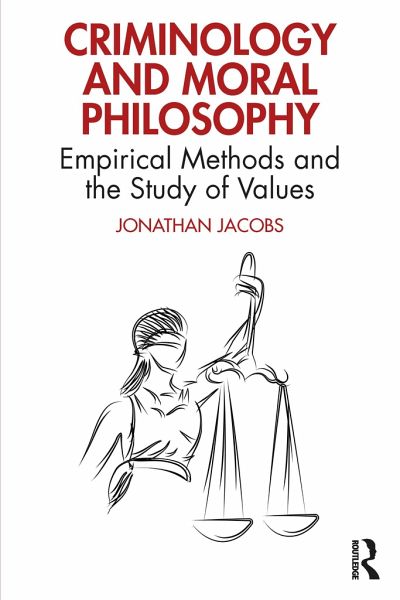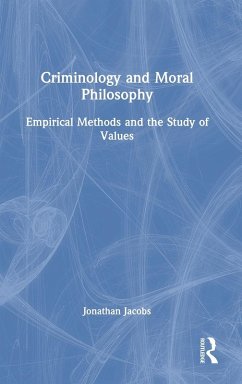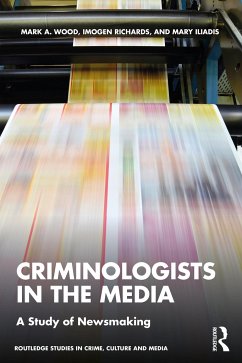
Criminology and Moral Philosophy
Empirical Methods and the Study of Values
Versandkostenfrei!
Versandfertig in 6-10 Tagen
36,99 €
inkl. MwSt.
Weitere Ausgaben:

PAYBACK Punkte
18 °P sammeln!
The book examines some of the most important forms of normativity and the relation between facts and values in the context of criminological investigation. In recent decades numerous criminologists have argued that criminology needs to be more explicitly concerned with normative considerations and with morality and this book explains the plausibility of that view and of empirically rigorous non-positivist study of moral values. Hume is often regarded as a key figure in separating facts from values and he was a formidable opponent of moral rationalism. Yet, in his own moral philosophy he sought...
The book examines some of the most important forms of normativity and the relation between facts and values in the context of criminological investigation. In recent decades numerous criminologists have argued that criminology needs to be more explicitly concerned with normative considerations and with morality and this book explains the plausibility of that view and of empirically rigorous non-positivist study of moral values. Hume is often regarded as a key figure in separating facts from values and he was a formidable opponent of moral rationalism. Yet, in his own moral philosophy he sought to explicate the genuineness and authority of moral considerations without endorsing some implausible positivist interpretations of a putative fact/value distinction. The significance of Hume's view and its implications for the empirical study of morality are explored.
The book discusses several layers of normativity explored by criminological investigation including:
The relation between law and morality
the concept of the Rule of Law
the normativity of the notion of criminality
the justification of sanction
the presence and significance of moral considerations
This book will be of interest to students taking upper-level courses on criminal justice ethics, punishment, political theory, jurisprudence, and social philosophy.
The book discusses several layers of normativity explored by criminological investigation including:
The relation between law and morality
the concept of the Rule of Law
the normativity of the notion of criminality
the justification of sanction
the presence and significance of moral considerations
This book will be of interest to students taking upper-level courses on criminal justice ethics, punishment, political theory, jurisprudence, and social philosophy.














